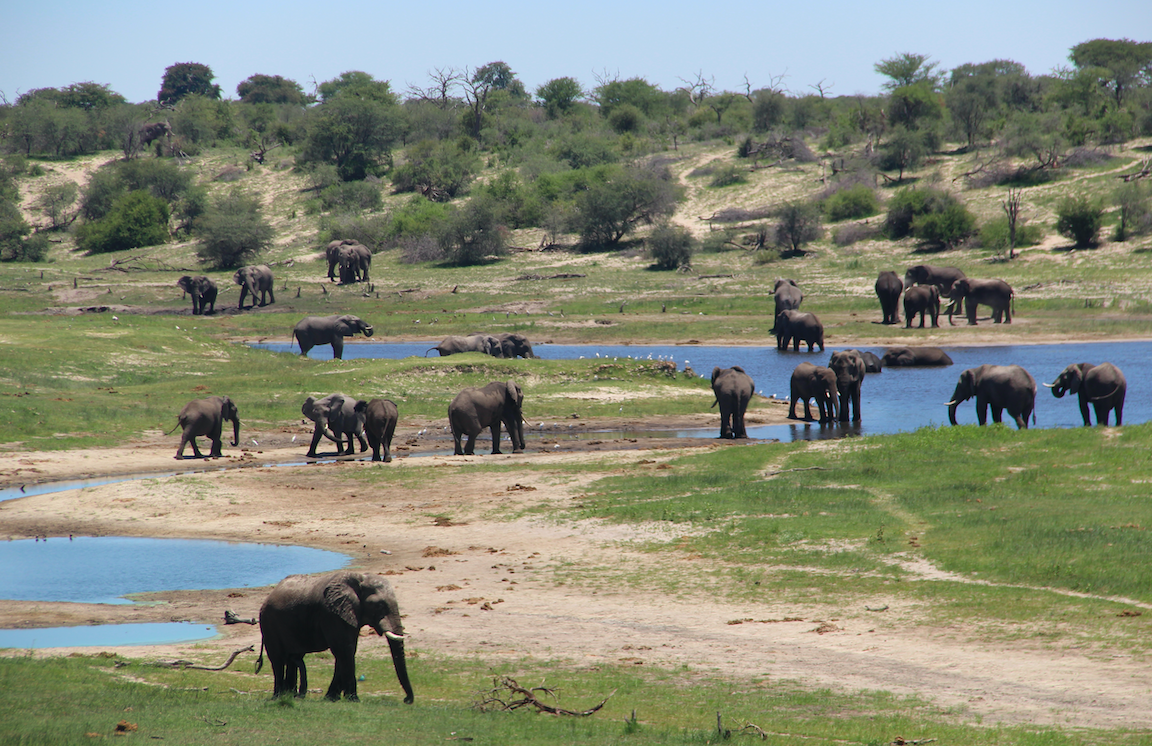Elephant species all over Africa and Asia are facing the increasing threats of habitat loss and human-elephant conflict. The elephant habitats become smaller because humans are forced to expand their territories due to overpopulation, and this causes the elephants to increasingly come in contact with humans. Crop fields are being raided by elephants because of the high nutritional values, and besides the destruction of the harvest, there is a great deal of fear and disruption to the daily lives of members of the local community.
Elephants for Africa is continuously striving to achieve an improved human-wildlife coexistence through research and education programmes aimed at farmers and children. Located in Botswana in the Makgadikgadi Pans National Park (MPNP), they conduct research to conserve African savannah elephants through understanding the ecological and social requirements of elephants and put these into the contexts of human-wildlife conflict.
Thanks to the support of the Dierenpark Amersfoort Wildlife Fund, Elephants for Africa is now conducting research to investigate a potential new approach to conflict mitigation between humans and elephants in the MPNP. Elephants travel on elephant pathways, and research has shown that they mostly rely on their sense of smell to follow these pathways. The elephants follow the scent trail deposited by other elephants to navigate along the established pathways and to find resources. The aim is to use olfactory cues from urine and dung in pathway soil to manipulate elephant movement and ultimately redirect the established pathways away from agricultural lands and human settlements. Additionally, the allocation of olfactory cues to corridors could potentially enhance the effectiveness of these corridors in connecting protected areas for elephants.
